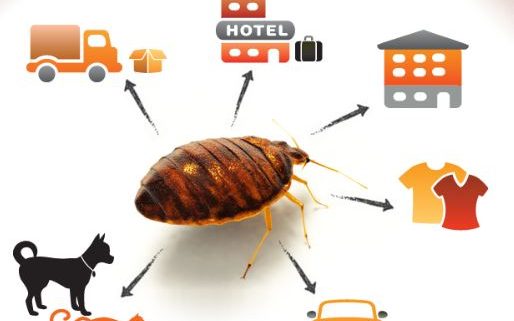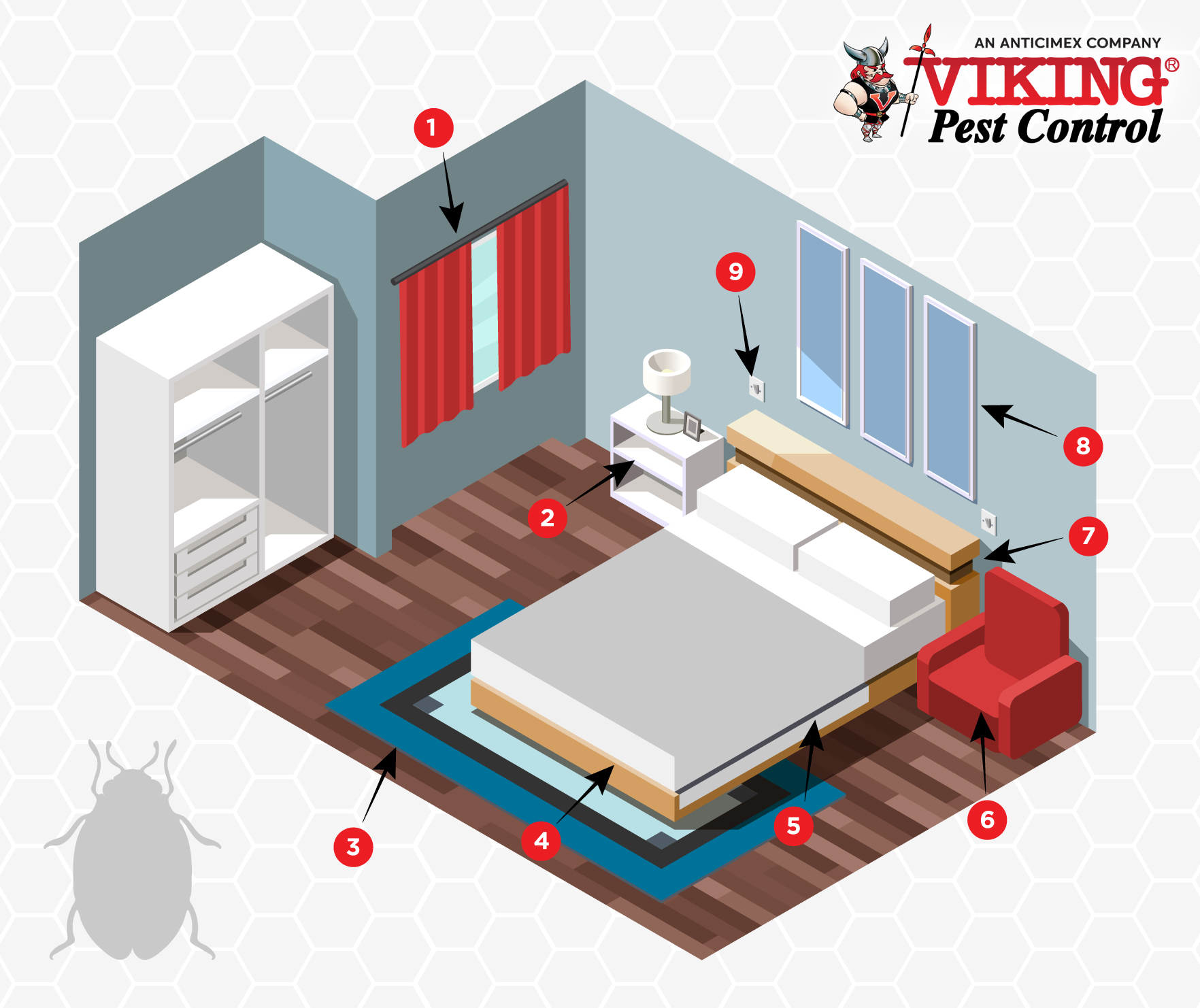Comprehensive Kings Bug Control Services Cincinnati OH
Comprehensive Kings Bug Control Services Cincinnati OH
Blog Article
A Breakdown of the Different Kinds Of Parasite Control Solutions
In the world of insect control, a wide range of methods exist to battle the visibility and attend to of unwanted creatures. As we browse with the diverse landscape of pest control solutions, recognizing the details of each technique becomes paramount in determining the most reliable program of action.
Chemical Pesticides
Chemical chemicals are frequently used in parasite control to successfully get rid of a wide variety of bugs and other parasites. These pesticides function by targeting the nerve system of the insects, disrupting their regular functions, and ultimately causing their demise. Making use of chemical pesticides has been a staple in the pest control market for decades because of their efficiency and fast results.

However, it is important to make use of chemical pesticides with care due to their possible unsafe results on the environment and non-target species. Inappropriate application or overuse of these pesticides can cause contamination, injury to valuable pests, and resistance advancement in parasite populations. Consequently, it is critical to follow safety guidelines and guidelines when using chemical pesticides for insect control.
Biological Control Approaches
Taking into consideration the possible environmental influences and risks connected with chemical pesticides, biological control methods offer a more sustainable method to handling bug populations. Biological control entails the use of all-natural opponents, such as microorganisms, parasites, and killers, to subdue parasite populations. This technique is commonly much more targeted, influencing only the certain parasite types while reducing harm to beneficial insects, human beings, and the atmosphere.

One advantage of biological control is its long-lasting effectiveness. Once developed, natural opponents can help control pest populations continually without the demand for duplicated applications of pesticides. Additionally, biological control is usually more economical and can aid minimize chemical resistance in parasite populations with time. In general, organic control methods supply a lasting and ecologically friendly service to pest management.

Mechanical Insect Control
Mechanical parasite control entails the physical adjustment or elimination of bugs to manage their populations effectively. One common instance of mechanical parasite control is utilizing traps to capture pests or rodents.
Another mechanical approach is using obstacles such as fences, nets, or displays to obstruct insects from entering details locations. By physically avoiding pests from accessing an area, the probability of invasions or damage can be significantly lowered. In addition, hands-on approaches like handpicking pests off plants or frameworks can be reliable for smaller-scale invasions.
While mechanical pest control approaches can be labor-intensive, they provide a non-chemical alternative that can be sustainable and eco friendly. By targeting parasites directly, mechanical control strategies can assist maintain insect populaces in check without counting on chemicals.
Natural Solutions
Using all-natural treatments for parasite control provides a eco-friendly and lasting approach to handling pest populations without considering chemical interventions. All-natural solutions involve utilizing substances stemmed from plants, minerals, or various other naturally occurring resources to deter or get rid of bugs. For example, planting specific natural herbs like basil, mint, or lavender around your building can ward off pests due to their strong aromas. Diatomaceous planet, a powder made from fossilized algae, can be used to fight bugs like ants, roaches, and More about the author bed pests by dehydrating their exoskeletons.
In addition, essential oils such as tea tree oil or neem oil have insecticidal buildings that can properly regulate article source bugs while being risk-free for the atmosphere. Another natural solution is presenting valuable pests like ladybugs or hoping mantises to your garden to exploit unsafe parasites. By including these all-natural options into insect management strategies, people can lower their dependence on synthetic chemicals and promote a much healthier, much more balanced environment.
Integrated Bug Monitoring
Integrated Insect Monitoring (IPM) is an extensive method that incorporates different techniques to effectively manage pest populations while decreasing dangers to human health and the setting. IPM involves the assimilation of several parasite control techniques such as organic control, habitat manipulation, adjustment of cultural techniques, and using immune crop selections. By using a mix of these techniques, IPM intends to reduce dependence on chemical pesticides, which can have negative influence on communities and human wellness.
One key element of IPM is the emphasis on avoidance. By implementing steps to prevent insect problems before they happen, such as keeping proper cleanliness and securing entry factors, the demand for reactive bug control actions is reduced. Surveillance and normal evaluations play a crucial function in IPM, enabling very early detection of bug concerns and prompt intervention.
Final Thought
Finally, the different kinds of parasite control solutions use a variety of options for successfully handling parasite infestations. Chemical pesticides give quick removal however might have ecological risks. Biological control methods utilize natural killers to control parasites. Mechanical parasite control entails physical obstacles or catches. All-natural solutions supply non-toxic alternatives. Integrated Pest Management combines multiple techniques for an alternative method to pest control. Each approach has its very own advantages and downsides, and selecting the most proper remedy relies on the details bug issue available.
Chemical chemicals are typically made use of in bug control to efficiently eliminate a vast variety of insects and various other insects.Mechanical parasite control includes the physical manipulation or elimination of insects to handle their populations properly (Kings pest control Cincinnati Ohio).Utilizing natural solutions for insect control offers a sustainable and environment-friendly approach to handling parasite populations without resorting to chemical treatments.Integrated Pest Administration (IPM) is a comprehensive technique that incorporates various methods to effectively manage pest populaces while minimizing risks to human health and wellness and the setting.In conclusion, the different kinds of pest Source control services use an array of options for efficiently taking care of parasite infestations
Report this page